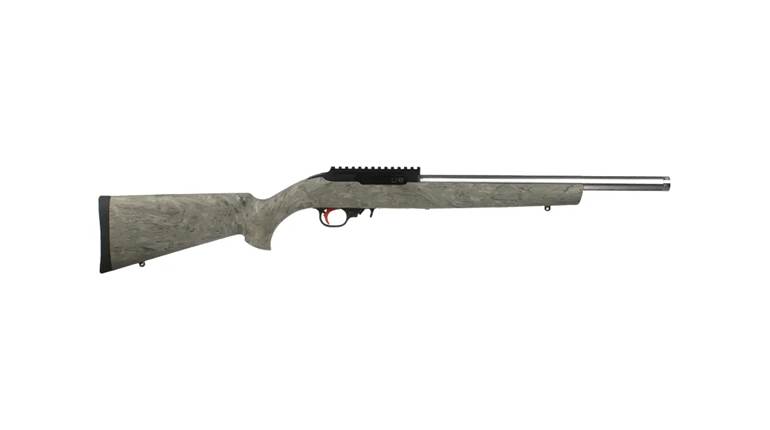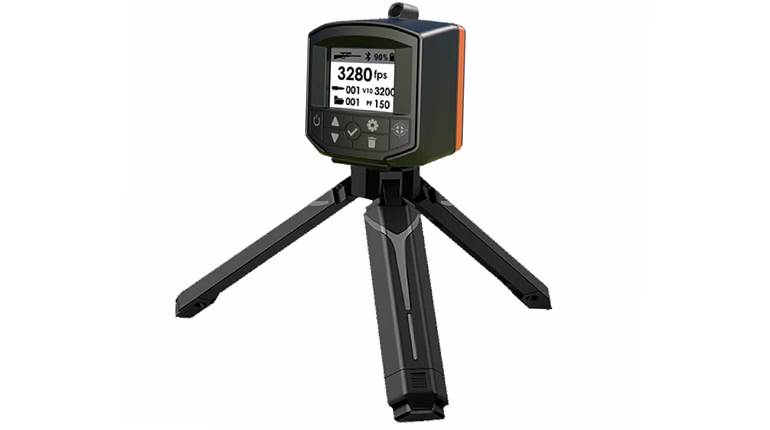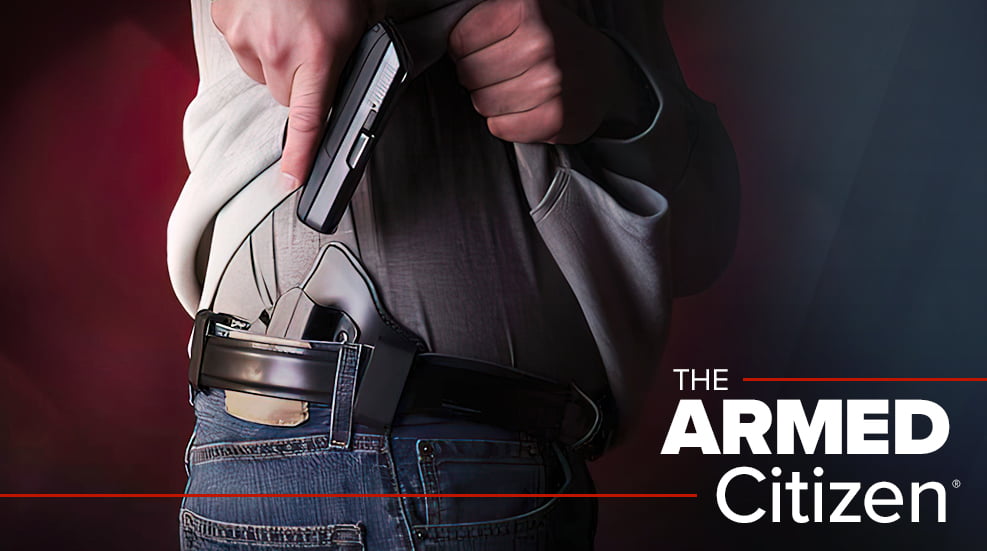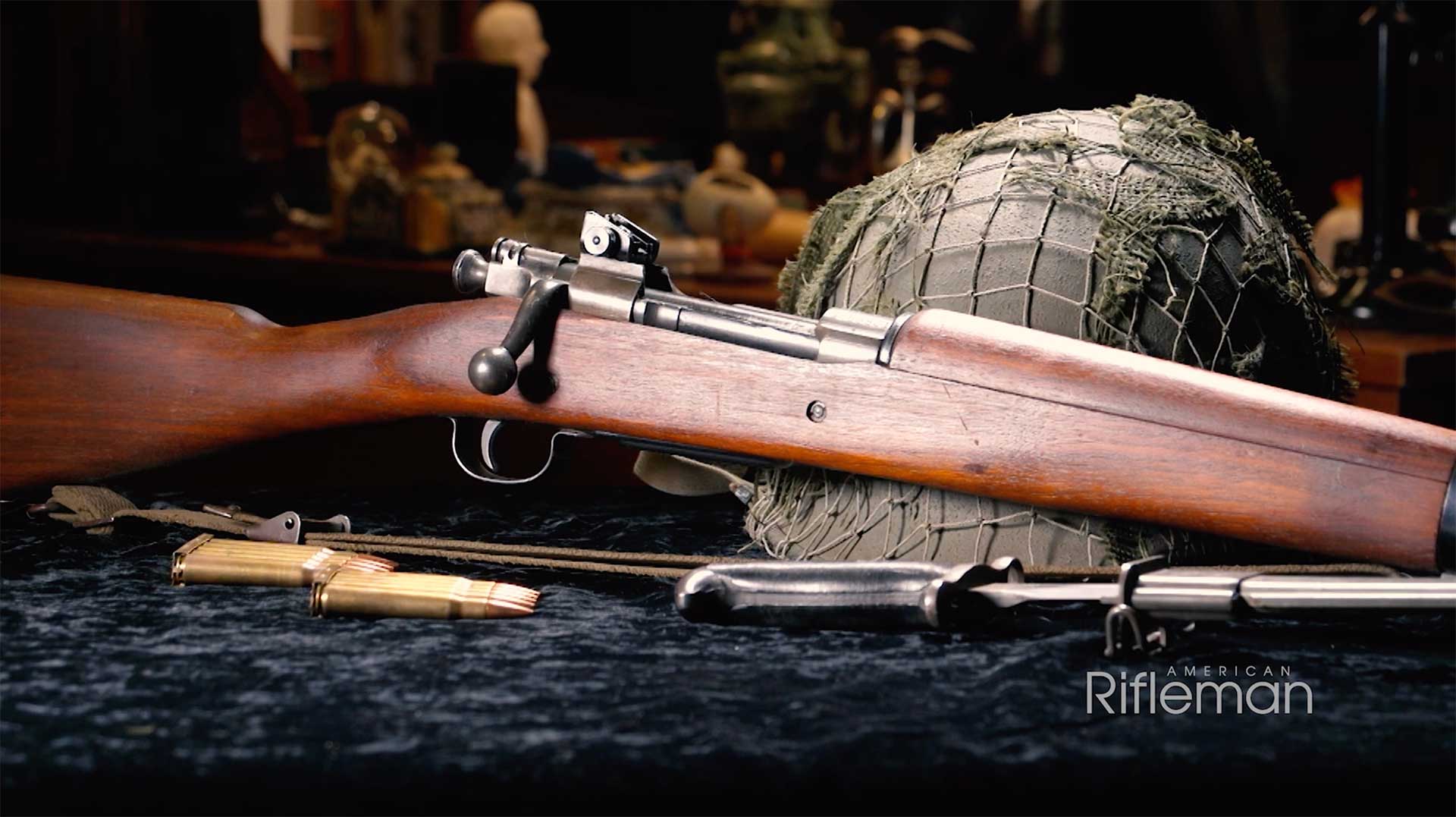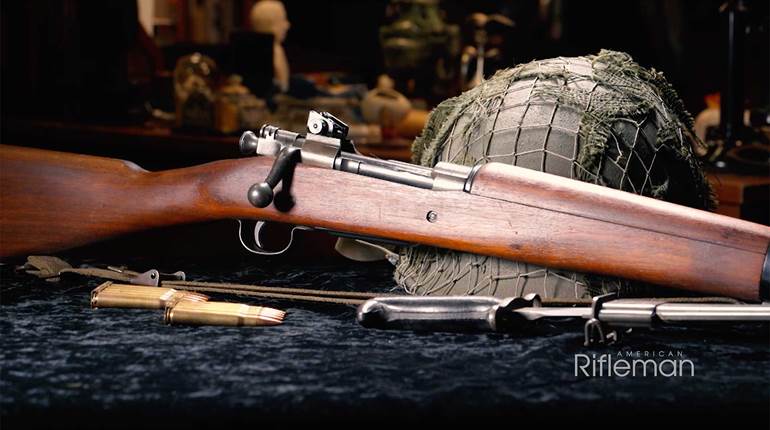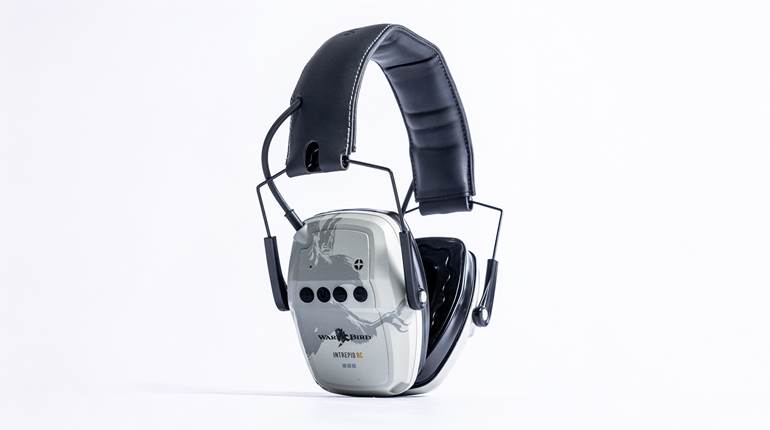
Before proceeding, let's go ahead and say it together, “The name's Bond, James Bond." Ian Fleming had no idea the favor he was doing for Walther when he chose to upgrade 007's carry gun from the Beretta 418 .25 ACP to the PPK chambered in .32 ACP (7.65 mm). The PPK was all but overlooked in the American shooting market until the release of “Dr. No” in 1962, starring Sean Connery. Since then, the PPK has been as much of a movie icon as the fictional secret agent who wields it.
In 2013, Walther Arms, Inc. re-released the PPK/S chambered in .22 Long Rifle for sale in the United States. This pistol is manufactured at Walther’s plant in Arnsberg, Germany, as shown by the Ulm and Cologne proof marks on the right side of the frame, and is available in either a black or silver-nickel finish. The dimensions and controls of the rimfire PPK/S are the same as those of the .380 ACP center-fire version but the materials used and some of the internal features have been modified to accommodate the smaller rimfire cartridge.
The pistol is 6.1-inches long, 4.9-inches high and the slide is 0.98-inches wide. It has an unloaded weight of 24 ounces. This blow-back operated semi-auto is fitted with a frame-mounted 3.3-inch barrel. Locking the slide open reveals a factory-installed thread protector attached to the barrel's threaded muzzle. This is a boon to shooters who would like to use muzzle accessories, like sound suppressors. A small wrench is provided with the pistol to remove the thread protector.
The pistol tested arrived with frame and slide treated in a silver-nickel finish, with matte-black appointments, including the trigger, hammer, sights and magazine release. The only polymer to be found on the exterior of the pistol is used to make the black checkered grip panels and the magazine base. The frame of this PPK/S is constructed of steel. The slide is made of a lightweight zinc alloy to reduce the weight of the slide enough to cycle reliably with rimfire ammunition. Although an all-steel construction would be preferable, the slide appears to be well made and up to the task.
The sights consist of a fixed black front blade and a windage adjustable rear. Two additional front-sight blades are included with the pistol along with a small Allen Wrench for loosening and tightening the adjustment screw located in the rear sight. The top of the slide is cut with wavy lines to help reduce glare.
The controls for the pistol are located on left side, including the magazine release and the thumb safety. Although many semi-auto pistols have an external slide catch, the PPK/S has an internal catch. The slide will only lock open when a magazine is present in the grip, and the magazine has to be removed in order for the slide to close. The magazine release is of the round push-button variety. The thumb safety, located at the rear of the slide amidst the slide serrations, swings down toward the grip into the “safe” position and up toward the rear sight into the “fire” position. The thumb safety also acts as a de-cocker when moved into the “safe” position.
The trigger guard is rounded in the traditional PPK fashion. The frontstrap and backstrap of the grip are smooth, with no checkering or texturing. A beavertail extension at the top of the grip protects the shooter's hand from being bitten by the rounded hammer. The pistol arrives with one steel 10-round magazine.
The PPK/S operates with a double-action to single-action ignition system. The double-action trigger is listed as requiring 17.5 pounds of trigger pull to cycle, which is very heavy for any gun, let alone a small pistol. The Lyman Digital trigger gauge used to check triggers only goes up to 12-pounds, so we'll have to take their word for it. Whatever it may be, it’s too heavy for practical use. The single-action trigger, however, is listed as having a much more reasonable 6.5-pound trigger pull. The gauge says this particular gun has a lighter pull of 5 pounds 1 ounce.
Field stripping the rimfire PPK/S for cleaning is a simple process that follows the same procedure as the center-fire models. Begin by removing the magazine and verifying that the chamber is empty. While pulling down on the trigger guard, pull the slide back toward the hammer as far as it will go. Lift the slide at the back end, and then move it forward off of the frame-mounted barrel. Remove the single round-wire recoil spring from the barrel and the pistol is ready for cleaning.
Breaking in a brand new compact .22 Long Rifle pistol at the range can be something of an adventure. It's not unusual for them to need a 100- to 200-round break-in period to work the kinks out and start running reliably. It's also not uncommon for small .22 semi-auto pistols to be a little fussy about ammunition, especially when it comes to using affordably priced bulk-box ammo that tends to fluctuate in its power levels.
The PPK/S, however, proved to be quite reliable right out of the box. A pre-range check of the gun showed it to be not only clean and well-made but nearly lubricant-free. And so it was given a proper dose of gun oil before the shooting began. The pistol had a handful of hang-ups during the first hundred rounds, but after that it seemed the few failures that occurred were ammunition related. The pistol ran reliably all of the time when using hotter, high-quality loads.
Overall, this pistol was just plain fun to shoot. As expected, the heavy double-action trigger did not lend to either the accuracy or the shootability of the gun. But the grip was comfortable to hold and the short stroke and clean break of the single-action trigger was a pleasure to work with. The pistol's compact size, low weight, and light recoil make it a great fit for a wide variety of shooters when the single-action trigger is employed. It should be noted that small .22 pistols with short barrels are not an ideal choice for long-range shooting. The pistol’s small, rudimentary sights don't lend themselves to far-reaching shots either. However, for close-range plinking they get the job done.
Formal accuracy testing for the PPK/S .22 was conducted at 7 yards using a benchrest with the trigger set in the single-action mode. Individual five-shot group sizes ranged from 1.25 inches to 1.79 inches in size. The best single group and best group average were produced by CCI Mini Mag 40-grain copper-plated hollow points. The hot CCI Stinger 32-grain hollow points came in second with a 1.43-inch average, followed by Winchester's 555 36-grain copper-plated hollow points at 1.59 inches.
I'm a big fan of the compact semi-auto .22 pistol that's light and handy enough to tag along on trips to the great outdoors or for enjoyable plinking at the shooting range. The Walther PPK/S is a good example of the breed that functions reliably and is well made. For those who pack the center-fire PPK pistols for personal protection, this rimfire version provides a more affordable practice option. For those wanting to buy a classy plinker that will also complement a Tuxedo and a British accent, this is the rimfire pistol for you.
Manufacturer: Walther Arms
Model: PPK/S 22
Action: DA/SA
Caliber: .22 Long Rifle
Finish: Satin nickel-plated, black finish available
Grips: Black Checkered Polymer
Sights: Fixed
Sight Radius: 4.20”
Trigger: DA: 17.5 lbs., SA: 6.6 lbs.
Barrel Length: 3.30”
Overall Length: 6.10”
Height: 4.90”
Width: 0.98"
Weight: 24 ozs.
Capacity: 10+1 Rounds
Twist: 1:10” RH
Rifle Grooves: 6
Accessories: Hard case, one magazine, two additional front sight blades, barrel thread protector wrench, lock, owner's manual
MSRP: $449 (black), $469 nickel













